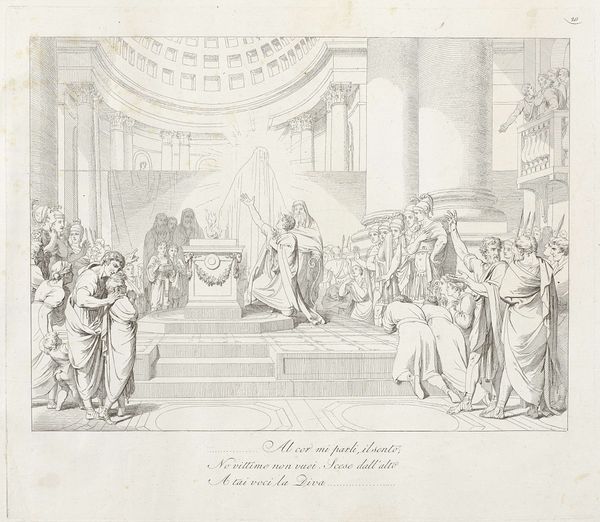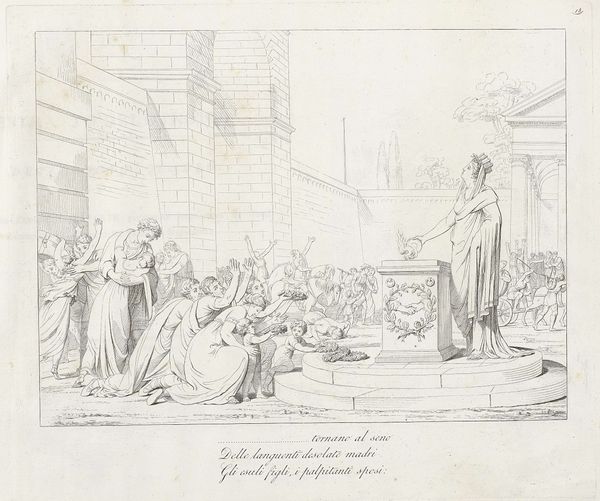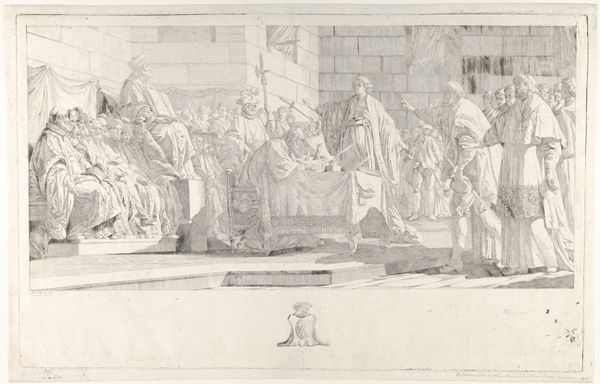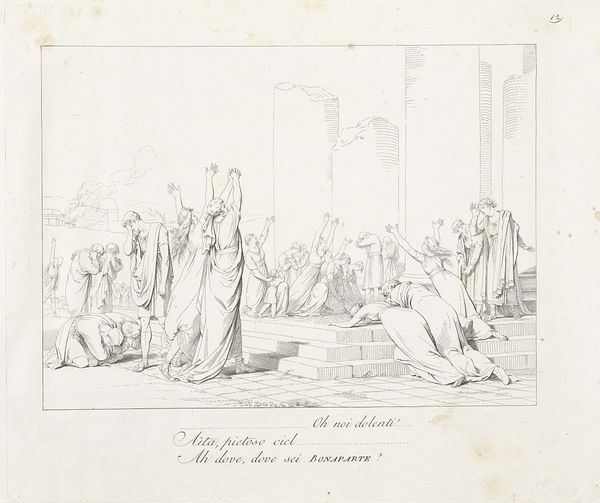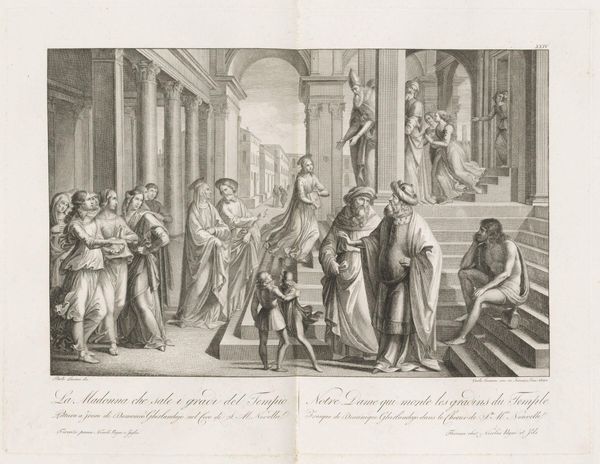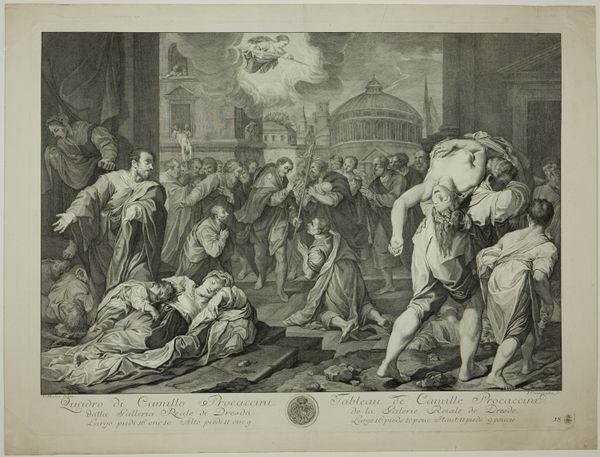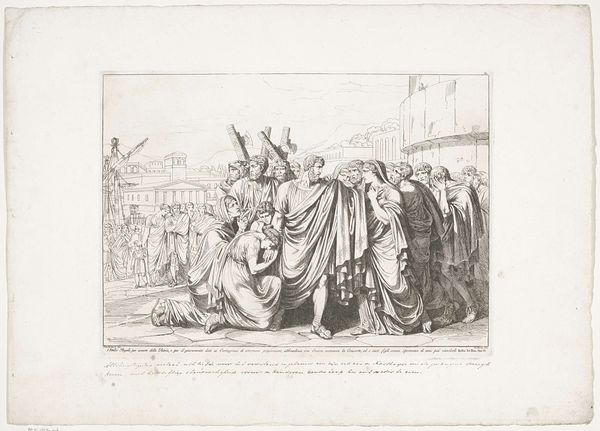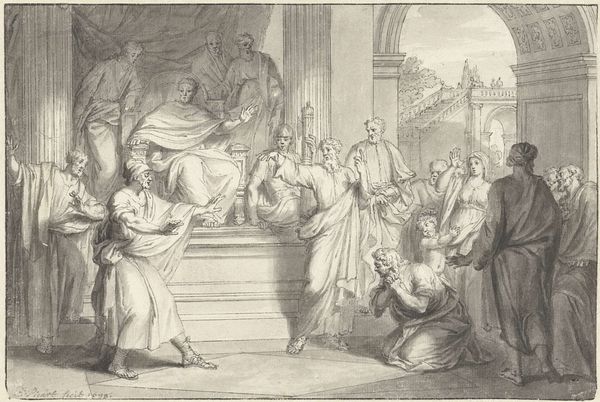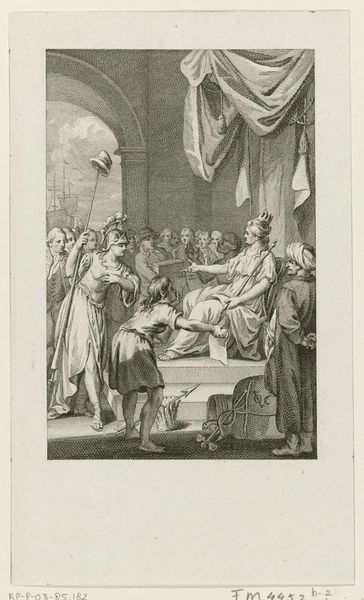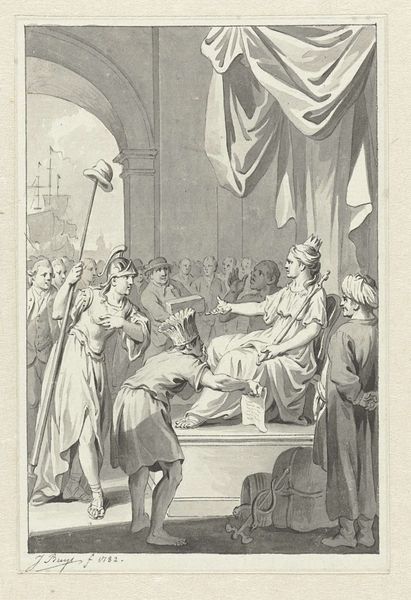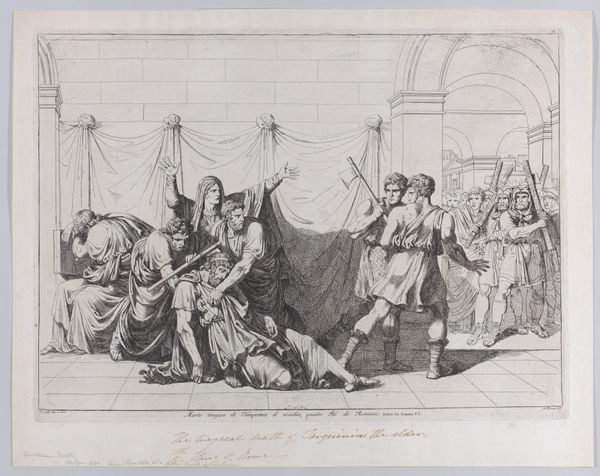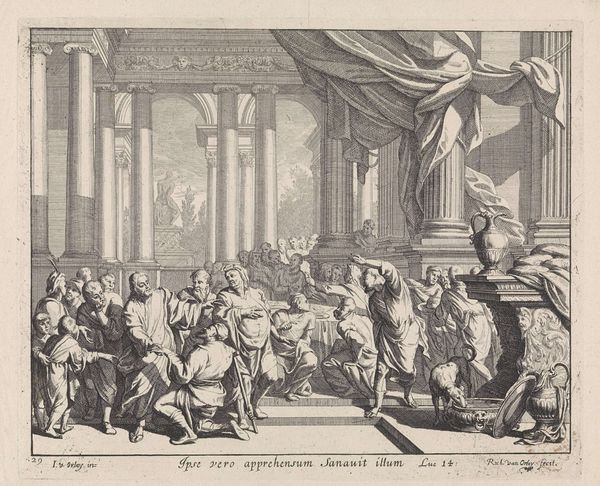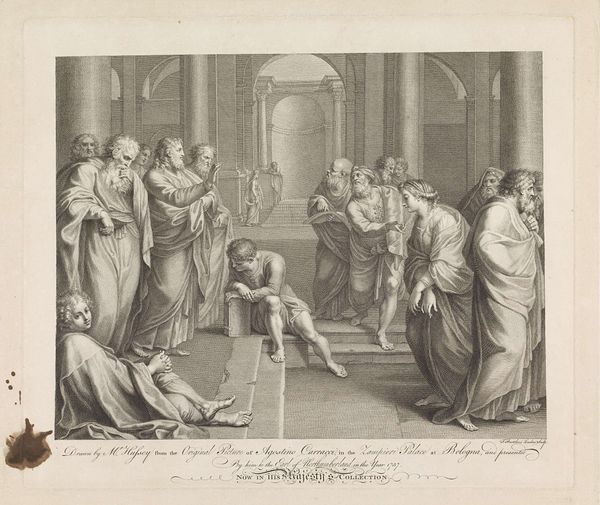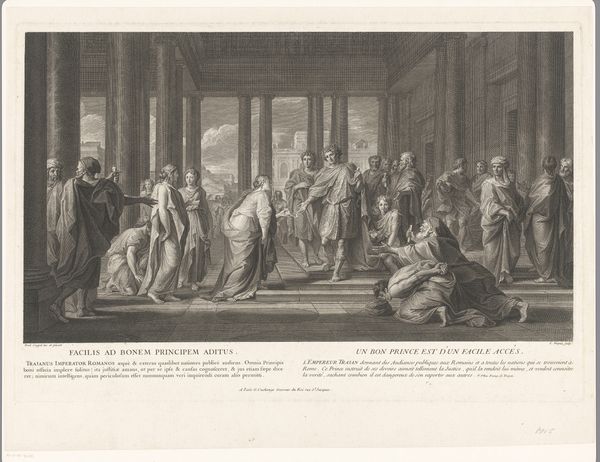
engraving
#
portrait
#
neoclacissism
#
narrative-art
#
cityscape
#
history-painting
#
academic-art
#
italian-renaissance
#
engraving
Dimensions: height 332 mm, width 382 mm
Copyright: Rijks Museum: Open Domain
Teodoro Matteini made this print depicting a crowd offering Napoleon a laurel wreath. The image is an exercise in the politics of imagery. It evokes classical Rome to glorify Napoleon's imperial ambitions. Created sometime around the turn of the nineteenth century, this Neoclassical style aligns with Napoleon's conscious adoption of Roman symbols. Note the architecture in the background, the togas, and the laurel wreath itself – all visual codes designed to legitimize his power by associating it with the grandeur of the Roman Empire. This wasn't just about aesthetics; it was about crafting a narrative of continuity and authority. The print also reflects the institutional context of art production at the time. Artists were often commissioned to create works that served a clear propaganda function, reinforcing Napoleon's image as a divinely appointed ruler. Historical records, including letters, diaries, and official documents, would help reveal the extent to which art served as a tool for shaping public opinion during this period.
Comments
No comments
Be the first to comment and join the conversation on the ultimate creative platform.
